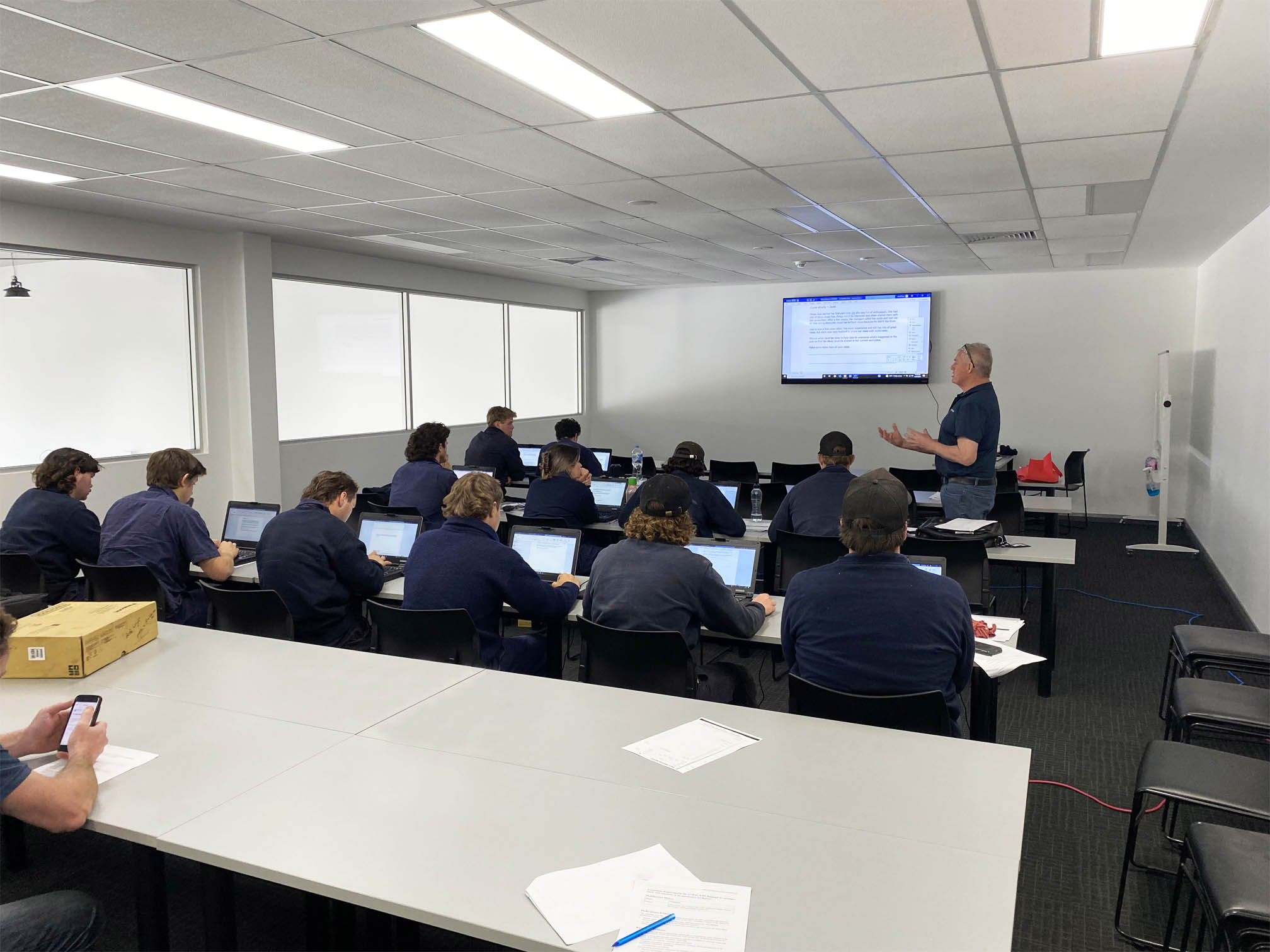McIntosh Training Academy gearing up for 2021
Originally published by Farm Weekly
By Mal Gill

Katanning McIntosh Training Academy Classroom
TWENTY SIX agricultural machinery apprentices will begin their training with McIntosh Training Academy in January.
This is the most apprentices to begin the four-and-a-half year course which qualifies them in two trades - both as a mechanic and as an auto-electrician - since McIntosh Training Academy was established as a division of McIntosh & Son three years ago.
After completing two years of preparatory work to become an RTO, the McIntosh & Son Katanning and Wongan Hills dealerships were registered as training centres and the division and qualified training staff are now managed out of Katanning.
Apprentices attend theory sessions in a room at each dealership equipped as a lecture theatre with audio-visual equipment, have a dedicated space in the workshops for their training projects and, when not at lectures, are in the workshops working alongside qualified technicians.
When required, technicians with specialist skills from within McIntosh & Son are called in to assist the trainers with specific modules of the accredited course.
“I think it’s one of the most important initiatives we’ve implemented in the past 10 years,” said McIntosh & Son southern group dealer principal Devon Gilmour last week.
“People are our greatest asset so it’s a large investment in making sure they are given the right training - if we can skill them up correctly, then we recoup the value quicker,” he said.
Mr Gilmour said the increasing sophistication of agricultural machinery and greater reliance on electronics for controlling and monitoring performance of various aspects of the machines’ operation meant “generic” courses offered at most other training organisations in WA had become less relevant to agricultural machinery.
McIntosh & Son having its own in-house RTO - a first for a machinery dealer in WA - was also far more efficient, both in time and learning productivity, than sending apprentices off to attend training in Perth or Albany, he pointed out.
“The feedback from the apprentices themselves is outstanding - they are very happy with the training,” Mr Gilmour said.
“It prepares them really well for real-world stuff.
“In some of our locations like Katanning, which has a local high school, the best opportunity we have of retaining people long term is getting local school leavers - getting the local kids who have grown up here, bringing them into the organisation and training them up to our standards.
“Often the education system has not done that, it’s been based on them leaving their hometown and friends and family networks for a city and those that are left behind in the regional towns struggle to find full-time employment with career prospects.”
Providing apprentices with skills to enable them to be work ready and a practical base on which to build a career through McIntosh Training Academy ensured McIntosh & Son had future access to technicians that understood not only the machinery, but the industry, Mr Gilmour said.
“Our lecturers have started going out with an apprentice and a senior tech on a retail job, monitoring their progress,” he said.
“We also link our apprentices in with our demos, so when we are doing spreader or tractor demos for example, McIntosh Training Academy will link in with the sales department programs and the apprentices will go along and learn how to drive and operate the machinery.
“It’s one thing to learn how to fix a gearbox, but you also have to understand how to operate them and get the best performance from them.
“Often we’ll give McIntosh Training Academy a combine harvester and they (apprentices) will do the pre-delivery on it as part of their learning and that might become the demo combine and they will go out and drive it and learn how to operate it.
“It’s hands-on learning.”

